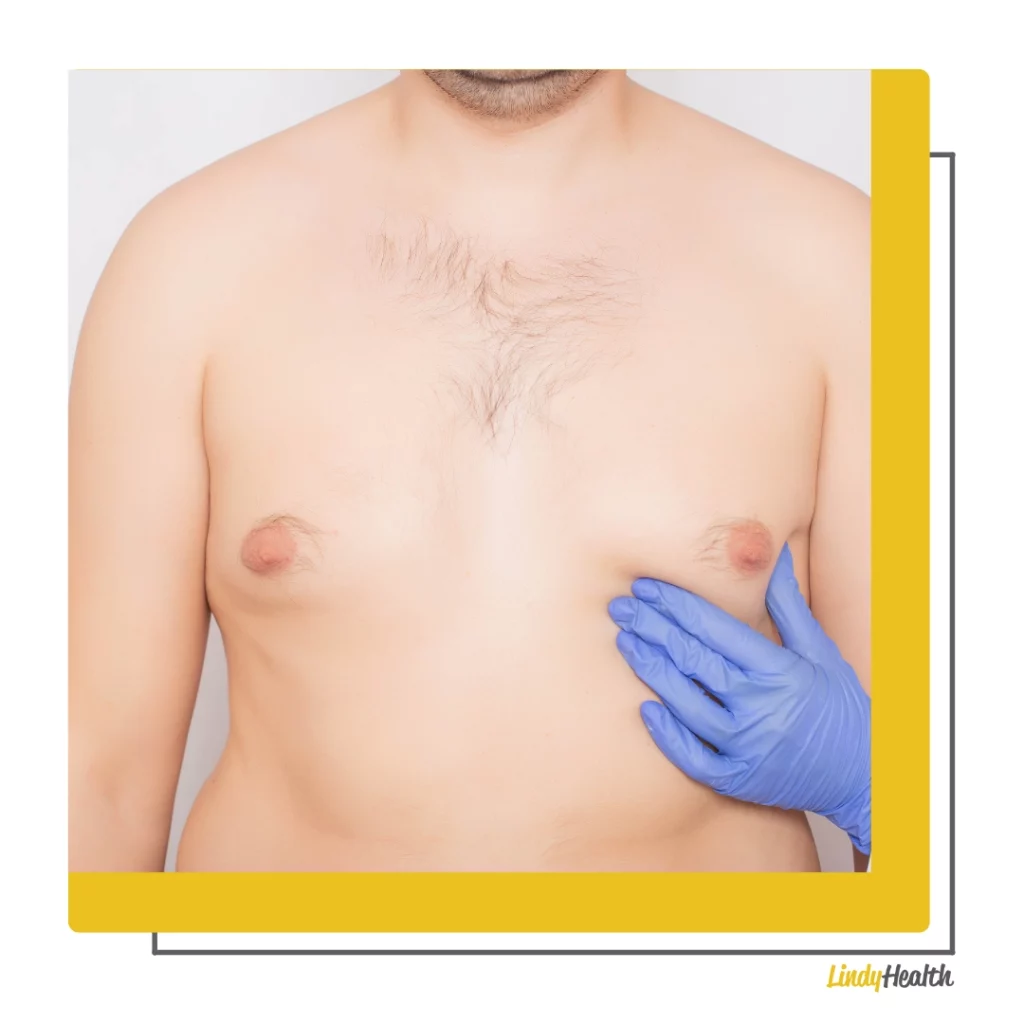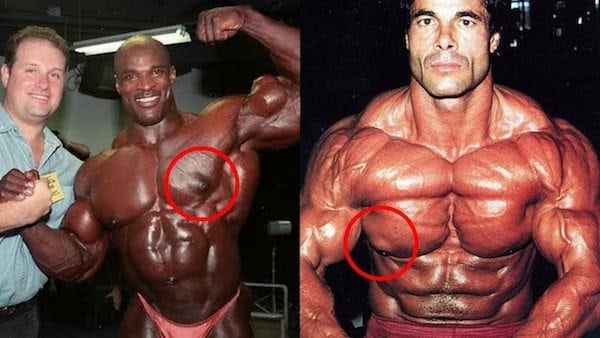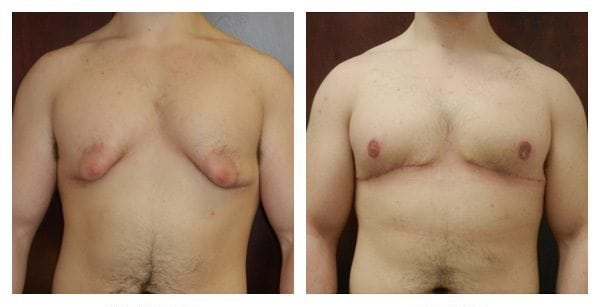Have you ever wondered if taking creatine supplements can lead to gynecomastia, also known as the development of male breast tissue? It’s a common concern among men who are looking to gain muscle and improve their athletic performance. Well, let’s dive into this topic and explore the relationship between creatine and gynecomastia, shall we?
Creatine is a naturally occurring compound found in muscle cells, and it plays a key role in providing energy during high-intensity exercises. Many athletes and bodybuilders use creatine supplements to enhance their athletic performance and build muscle mass.
However, there have been some concerns that creatine may contribute to the development of gynecomastia. In this article, we’ll take a closer look at the available research and scientific evidence to determine if there is indeed a link between creatine use and gynecomastia. So, if you want to learn more about this topic and get a simple explanation, keep reading!
You’ll find that there is a lot of conflicting information out there regarding the effects of creatine on gynecomastia. Some studies suggest that there is a potential risk, while others conclude that there is no significant correlation. It’s important to note that gynecomastia can have various causes, including hormonal imbalances, medication side effects, and certain medical conditions.
While there isn’t a clear and definitive answer, understanding the potential risks and consulting with a medical professional can help you make an informed decision about whether or not to include creatine in your supplement routine. So, let’s explore the topic further and gather all the necessary information to help you make the best choice for your fitness goals and overall health!

Understanding Gynecomastia
The Definition of Gynecomastia
Gynecomastia is a condition characterized by the enlargement of the breast tissue in males. It occurs when there is an imbalance between estrogen and testosterone hormones in the body. This condition is common during certain stages of life, such as infancy, puberty, and older age. However, it can also be caused by certain medical conditions, medications, and lifestyle factors.
Causes of Gynecomastia
Gynecomastia can have various causes, including hormonal imbalances, medications and drugs, and certain health conditions. Hormonal imbalances can occur during puberty, leading to temporary breast tissue enlargement. In older men, a decrease in testosterone levels coupled with an increase in estrogen levels can also contribute to gynecomastia. Certain medications and drugs, such as anabolic steroids, anti-androgens, and marijuana, can cause breast tissue growth as a side effect. Health conditions like liver disease, kidney failure, and hormonal disorders can also contribute to gynecomastia.
Symptoms and Effects of Gynecomastia
The most noticeable symptom of gynecomastia is the enlargement of breast tissue in males. This can result in a protrusion of the nipples and a puffy or swollen appearance of the chest. Some individuals may experience tenderness or pain in the breast area. Gynecomastia can have significant psychological effects, causing embarrassment, low self-esteem, and anxiety in affected individuals. It is important to understand the underlying causes and explore appropriate treatment options to manage the condition effectively.
What is Creatine?
Definition of Creatine
Creatine is a naturally occurring compound found in the body, primarily in muscle cells. It is involved in providing energy for muscle contractions during high-intensity exercises. Creatine can also be obtained from dietary sources such as meat and fish. Many athletes and bodybuilders use creatine supplements to enhance their athletic performance, increase muscle mass, and improve exercise capacity.
How Creatine Works
Creatine works by increasing the production of adenosine triphosphate (ATP), which is the primary energy source for muscle contractions. By increasing ATP availability, creatine supplementation can result in improved muscle strength, power, and endurance. It also helps in increasing the water content within muscle cells, leading to a process called cell volumization. This form of increase in muscle size is different from gynecomastia, which involves the enlargement of breast tissue.
Benefits of Creatine
Creatine supplementation has been extensively studied and has been shown to provide numerous benefits. It is effective in enhancing anaerobic performance, increasing muscle strength and power, and improving muscle recovery. Additionally, creatine supplements have been found to be safe for short-term use, with limited adverse effects. It is important to note that while creatine can provide these benefits, it is not a magic pill for muscle growth and performance enhancement. Proper training and nutrition remain key factors for achieving desired results.

Misconceptions about Creatine
Link between Creatine and Gynecomastia
There has been a longstanding misconception regarding the potential link between creatine supplementation and the development of gynecomastia. Some individuals fear that creatine supplements may alter hormone levels and lead to the enlargement of breast tissue. However, scientific research and expert opinions suggest otherwise.
Research Studies on Creatine and Gynecomastia
Several research studies have been conducted to investigate the potential relationship between creatine supplementation and gynecomastia. The majority of these studies have found no significant evidence to support the claim that creatine causes gynecomastia. In a study published in the Journal of Clinical Psychopharmacology, researchers found no increase in breast size among 17 male subjects who took creatine for 28 days. Other studies have also concluded that creatine supplementation does not lead to gynecomastia.
Understanding Gynecomastia Causes
Hormonal Imbalances
Hormonal imbalances play a crucial role in the development of gynecomastia. This can occur during puberty, when there is a temporary imbalance between estrogen and testosterone hormones. In older men, a decrease in testosterone levels and an increase in estrogen levels can contribute to gynecomastia. It is important to note that creatine supplementation does not directly affect hormone levels in a way that would lead to gynecomastia.
Medications and Drugs
Certain medications and drugs have been associated with the development of gynecomastia. These include anabolic steroids, anti-androgens used in the treatment of prostate cancer, and some medications for psychiatric conditions. Marijuana use has also been linked to gynecomastia. It is crucial to identify and discuss any medications or drugs you are taking with your healthcare provider to determine if they may be contributing to the development of gynecomastia.
Certain Health Conditions
Certain health conditions, such as liver disease, kidney failure, and hormonal disorders, can contribute to the development of gynecomastia. These conditions can cause hormonal imbalances or affect hormone metabolism, leading to breast tissue enlargement. It is important to address any underlying health conditions that may be contributing to gynecomastia through appropriate medical interventions.

Does Creatine Cause Gynecomastia?
Existing Research Studies
Existing research studies have consistently shown that creatine supplementation does not lead to the development of gynecomastia. These studies have involved both short-term and long-term creatine supplementation in various populations, including athletes and non-athletes. None of the studies have found a significant increase in breast tissue size or gynecomastia related to creatine use.
Experts’ Opinions and Recommendations
Health experts and professional organizations, such as the International Society of Sports Nutrition (ISSN) and the American College of Sports Medicine (ACSM), have concluded that creatine supplementation is safe and does not cause gynecomastia. These organizations base their recommendations on the available scientific evidence and emphasize the importance of proper dosages and duration of creatine supplementation.
Factors to Consider
Dosage and Duration of Creatine Use
When using creatine supplements, it is important to follow the recommended dosage and duration guidelines. Higher doses of creatine may lead to potential side effects, including gastrointestinal discomfort and water retention. It is advisable to start with a loading phase (typically 20 grams per day for 5-7 days) followed by a maintenance phase (typically 2-5 grams per day) to ensure optimal results without unnecessary risks.
Individual Susceptibility
It is important to recognize that individuals may respond differently to creatine supplementation. While the majority of people tolerate creatine well, some individuals may be more susceptible to side effects or have underlying health conditions that require closer monitoring. If you have any concerns or pre-existing medical conditions, it is advisable to consult with a healthcare professional before starting creatine supplementation.
Combination with other Substances
Creatine is often combined with other substances, such as protein powders or pre-workout supplements. It is essential to be cautious about the potential interactions and effects of these combinations. Some ingredients in certain supplements may have their own side effects or interactions with creatine. It is advisable to read product labels, seek professional advice, and ensure that the combination of substances is safe and appropriate for your individual needs.

Preventing and Managing Gynecomastia
Lifestyle Changes
Making certain lifestyle changes can help prevent and manage gynecomastia. Maintaining a healthy weight, exercising regularly, and adopting a balanced diet can contribute to hormone balance and overall health. Alcohol consumption and illicit drug use should be avoided, as they can contribute to hormonal imbalances and increase the risk of gynecomastia. It is important to consult with a healthcare professional or a registered dietitian for personalized advice related to lifestyle modifications.
Medical Interventions
If gynecomastia becomes a significant concern or is causing distress, medical interventions may be considered. These interventions can include medication options to address hormonal imbalances or surgery to remove excess breast tissue. It is crucial to consult with a qualified healthcare professional who specializes in gynecomastia to discuss the available treatment options and make an informed decision.
Counseling and Support
Gynecomastia can have profound psychological effects, leading to feelings of embarrassment, low self-esteem, and anxiety. Seeking counseling and support from professionals, support groups, or trusted friends and family members can be beneficial in managing the emotional impact of gynecomastia. It is important to remember that gynecomastia is a common condition and seeking support can provide reassurance and guidance.
Other Potential Side Effects of Creatine
Dehydration and Cramping
Creatine supplementation may increase water retention within muscle cells, which can lead to temporary weight gain and, in certain cases, dehydration. It is important to maintain adequate hydration by consuming enough fluids during creatine supplementation. Additionally, some individuals may experience muscle cramping, especially during intense exercise. Staying well-hydrated and incorporating proper stretching and warm-up routines can help minimize these potential side effects.
Kidney and Liver Function
There have been concerns regarding the potential impact of creatine supplementation on kidney and liver function. However, research studies have consistently shown that creatine supplementation does not have negative effects on these vital organs in healthy individuals. It is advisable to consult with a healthcare professional if you have pre-existing kidney or liver conditions to determine if creatine supplementation is appropriate for you.
Weight Gain
Creatine supplementation may lead to temporary weight gain due to increased water content in muscle cells. This weight gain is typically attributed to increased muscle mass and not body fat. It is important to recognize that individual responses may vary, and some individuals may experience more significant weight gain than others. Monitoring overall body composition and adjusting training and dietary strategies can help manage weight-related concerns.

Conclusion
In conclusion, creatine supplementation does not cause gynecomastia. Numerous scientific studies have refuted this myth, and reputable organizations’ expert opinions support it. Hormonal imbalances, medications, and particular health conditions are the main causes of gynecomastia.
Creatine, on the other hand, is a safe and effective supplement for enhancing athletic performance and muscle growth when used appropriately.
It is important to consult with healthcare professionals, follow recommended guidelines, and be aware of individual susceptibilities when using creatine or addressing concerns related to gynecomastia. By doing so, you can make informed decisions and prioritize your health and well-being.




